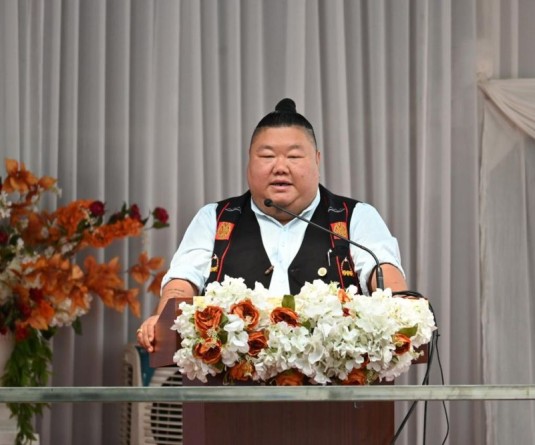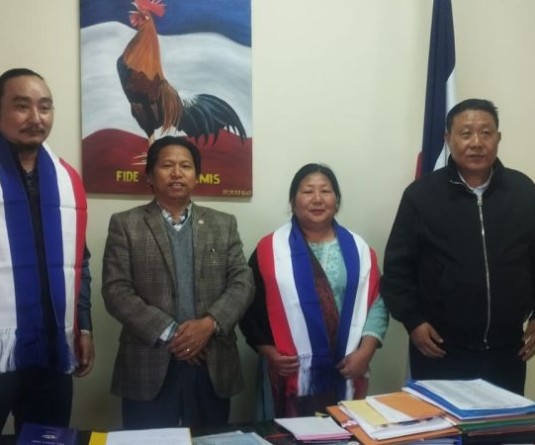The Department of History and Education of St Joseph University, Chümoukedima, jointly organised a two-day national seminar on “Heritage and Learning” from September 17-18.

CHÜMOUKEDIMA, SEPTEMBER 20 (MExN): The Department of History and Education of St Joseph University, Chümoukedima, jointly organised a two-day national seminar on “Heritage and Learning” from September 17-18.
The inaugural session was presided over by Dr Muleto Vero and began with an invocation by Rev Fr Pushpa Raj. Prof Avinuo Chupuo, head of the Department of History, delivered the welcome address, while Dr V T Vasagan, dean of Social Sciences and Management, outlined the objectives of the seminar.
Registrar Dr A Robert Xavier, in his presidential address, highlighted the university’s commitment to academic excellence and cultural stewardship. The seminar abstract was released by Deputy Registrar Rev Sr Dr Thianes Mary. Resource persons and dignitaries were felicitated by Dr K Rajaganesh, research coordinator, and Dr Vasagan.
The inaugural address was delivered by Naga Mothers’ Association president Vilanuo Angela Yhome, who stressed the intrinsic value of heritage and the need for collective action to safeguard cultural legacies. Padma Shri awardee and founder of Tribal Weave: Indigenous System of Learning, Sentila Yanger, delivered the keynote address, offering insights into contemporary challenges, global significance and international initiatives on cultural heritage.
Folk songs performed by undergraduate students of both organising departments added a cultural dimension to the academic event. The inaugural session concluded with a vote of thanks by Dr Rothunglo W Kithan.
The valedictory session on the second day was chaired by Khekato K Zhimo, with Dr Lily Aye Terangpi of Diphu Government College, Assam, as the special guest. Prof Vinoth S delivered the welcome address, Dr Rothunglo W Kithan presented the report, and certificates were distributed by the organising committee. The session ended with a vote of thanks by Prof Fr Sunny Joseph.
The seminar saw 101 paper presentations and 11 technical sessions, drawing scholars, intellectuals and students from Nagaland and beyond. The organisers said the event provided a robust platform for the exchange of ideas and research, further enhancing its academic impact.





